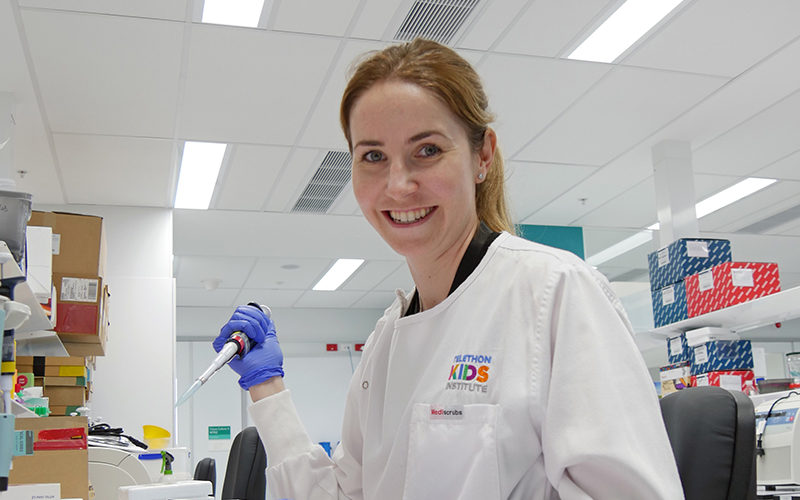
A The Kids Research Institute Australia researcher will work to better understand the immune system mechanisms that cause multiple sclerosis (MS), thanks to a new grant from MS Australia.
Inflammation and immunology researcher Dr Stephanie Trend will receive one of 26 grants awarded across Australia by MS Australia under its $6.9 million 2022 grant round – the highest level of funding the organisation has ever given.
Dr Trend, an Honorary Research Associate at The Kids Research Institute Australia and an MSWA Research Fellow with the Demyelinating Disease Group at the Perron Institute for Neurological and Translational Science, will use a $24,073 one-year Incubator Grant from MS Australia to lead a team in investigating the role of neutrophils – a type of white blood cell – in MS.
MS, a debilitating and progressive autoimmune disease which affects 25,600 people across Australia and currently has no cure, is caused by the immune system mistakenly attacking the body.
What causes this mistake is unclear, but what is known is that it probably involves both B and T cells – types of immune cells. The role of neutrophils is as yet unknown.
"Our research team has recently shown that B cells might be activated by proteins produced by neutrophils," Dr Trend said.
The team will now investigate whether there is any link between the two cell types in people with early MS. If neutrophils are found to be important in triggering B cells in MS, then new drugs might be developed to target them in the future.
The 2022 grant round represents the biggest research investment in MS Australia’s 50-year-history, taking the total amount provided for local investigator-led scientific projects in MS to $54 million since the organisation began in 1972.
This year’s round – shared amongst 26 research teams at universities and medical research institutions across Australia – is aimed at supercharging the next major leap in improving the lives of people living with MS, and ultimately finding a cure.
“We’re delighted to mark our 50th anniversary by announcing this landmark funding for research aimed at areas of high need,” MS Australia CEO Rohan Greenland said.
“We are at a critical point where we need to supercharge our research efforts. By supporting Australian researchers such as The Kids Research Institute Australia’s Dr Stephanie Trend and her work to investigate the role of neutrophils in MS, we have a much greater opportunity to make the big gains in MS that are still so desperately needed,” Mr Greenland said.
This year’s grants range from one-year innovative studies such as that being led by Dr Trend, to major three-year projects.
Dr Trend said she was thrilled to be part of the national push to unravel the causes of MS and find a cure.
“MS Australia does a fantastic job of supporting research in Australia,” she said. “Every project funded takes us a step closer to finding an important breakthrough. We are very excited to work together on this new area of research thanks to the opportunity this grant will provide.”
Dr Trend’s co-investigators include Dr Luke Garratt, Professor Prue Hart and Dr Jonatan Leffler from The Kids Research Institute Australia, Professor Allan Kermode from the Perron Institute, and Associate Professor Anne Bruestle from the John Curtin School of Medical Research at the Australian National University.
For more information on MS Australia and the 2022 round of grants, see here.
